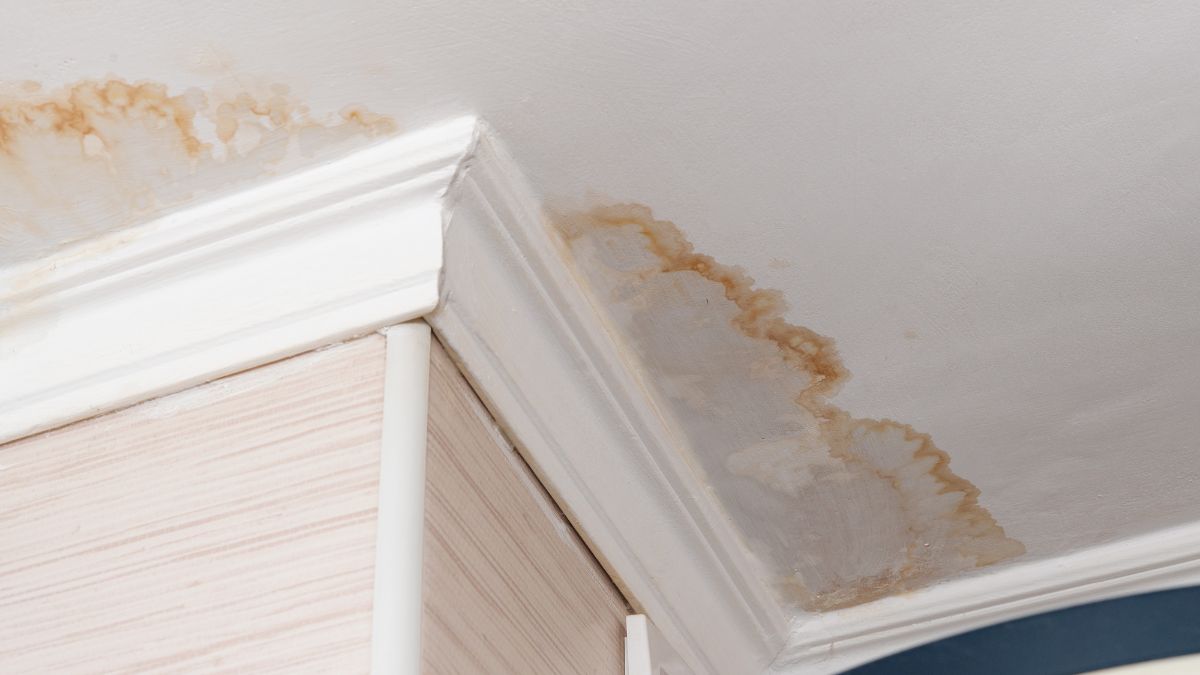
by Mold-B-Gone | Sep 13, 2023 | Health, Killing Mold, Mold Facts
When faced with property damage, understanding the problem at hand is half the battle won. The presence of moisture in homes can lead to two prevalent issues: water damage and mold growth. Although related, these two problems have different implications and remediation strategies.
Water Damage vs. Mold
Water damage is often an immediate consequence of flooding, leaks, or excessive moisture. It becomes apparent soon after a water mishap, making it easier to address promptly. However, if left unattended, water damage can lead to a more sinister problem—mold.
Mold, on the other hand, is a stealthy invader. It might take weeks before mold manifests visually or through a musty odor. By this time, mold spores could have already spread to various areas, making eradication more challenging. Mold slowly devours the surfaces it grows on, potentially causing irreversible damage over time.
How Mold Emerges From Water Damage
Excess water or moisture is the breeding ground for mold spores to thrive and multiply. Even minor water leaks, if undetected, can create a favorable environment for mold. The slow but persistent growth of mold might not only damage the property; it can also pose serious health risks to the inhabitants.
The Threat of Black Mold vs. Water Damage
When comparing black mold vs. water damage, the former presents a more menacing challenge. Black mold, also known as Stachybotrys, is infamous for causing various health issues, ranging from mild allergies to severe respiratory problems. In contrast, water damage primarily threatens the structural integrity of the property. However, both issues necessitate immediate attention and remediation to prevent further deterioration.
Seeking Professional Help
Whether dealing with water damage or mold, professional intervention is crucial for a thorough and effective resolution. DIY efforts might not only prove ineffective but could also potentially exacerbate the problem.
When it comes to mold remediation, especially, the need for a specialized approach is imperative. A mold removal specialist in Atlanta can provide expert solutions, ensuring the complete eradication of mold and the prevention of future infestations.
Read more : Top 9 Reasons To Get Your Home Or Business Dried Professionally After Water Damage?
Entrust Your Remediation Needs to the Experts
At the crossroads of water damage and mold lies the solution that addresses both issues comprehensively. Mold-B-Gone Remediation has positioned itself as a reliable partner in navigating these challenging remediation processes. With our expert touch, you can restore your property to its former glory and ensure a safe, mold-free environment. Act today to secure your home against the perils of water damage and mold. Reach out to us for a consultation, and let’s chart the path to a secure, restored, and mold-free dwelling.
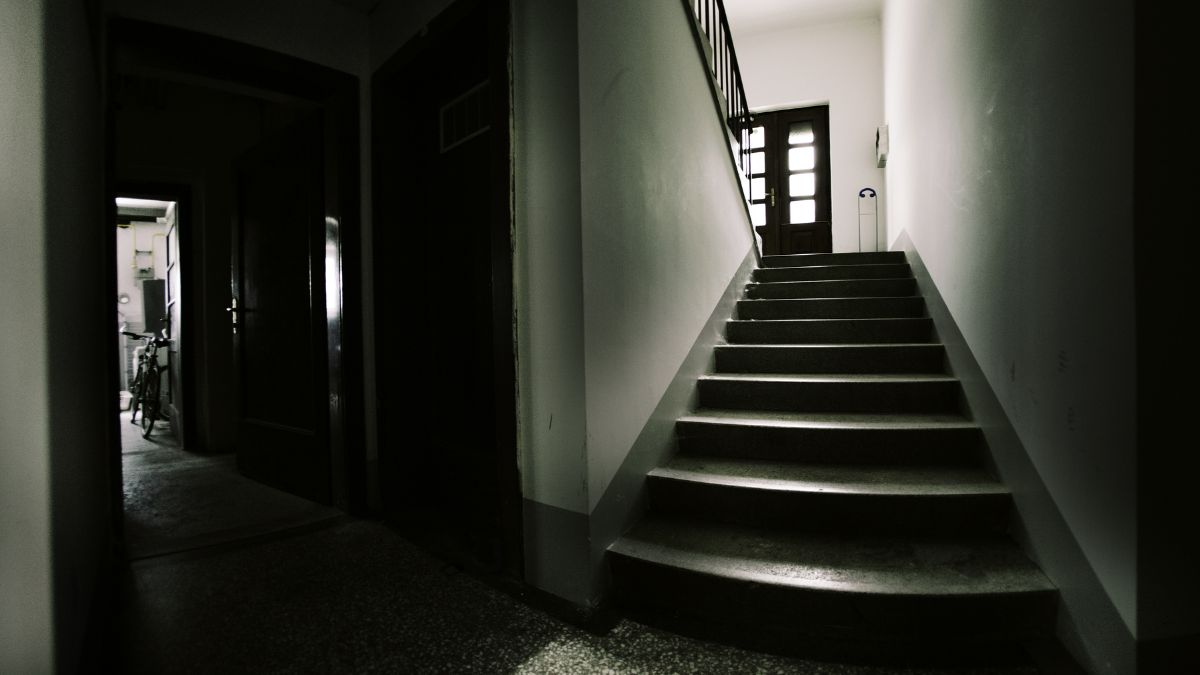
by Mold-B-Gone | Aug 10, 2023 | Health, Killing Mold, Mold Facts
Mold is a prevalent issue in many households. Given the right conditions, unfortunately, mold can spread to other areas of the home. Once the mold spores are carried to the rest of the residence, they begin to grow in places that have damp conditions. The trouble is that it’s not easily detected, so the problem may worsen before it becomes apparent. Mold can grow anywhere, provided the right conditions persist. So, a damp basement can affect the upstairs. You must be vigilant and solve the mold issue while it is still in the basement.
How Mold Travels Upstairs
Mold in the basement can affect the upstairs parts of the house via air ducts. Spores, microscopic seeds, are carried by air currents and can circulate to other areas of the house via the HVAC ducts. It also happens when warm air rises, so they are carried to the upper parts of the house. Spores can also attach themselves to clothing, skin, or shoes. Therefore, traffic in and out of the basement likely carries the spores to other parts of the house. These spores will germinate if they find suitable conditions in the different areas.
Safety Considerations When You Have Mold in the Basement
Considering how quickly mold can spread to other places in the house, you must know about the potential health implications. Mold may cause adverse reactions to people and their pets, including skin rashes, allergic reactions, or other respiratory issues. So, if there is mold in the basement, it would be advisable to have it removed immediately. Most people fear black mold because of the assumption it can cause cancer or likely kill. However, most species of mold are harmful to humans. Unchecked mold growth can also cause damage to the home, as it breaks down drywall and wood.
How to Remove Mold From Your Basement
Mold on basement walls must be preempted before it can spread to other areas of the house. Rather than doing the work yourself, call in mold removal specialists to deal with it. These professionals can identify and correct the source immediately. First, they assess the damage by checking all rooms in the house. Hopefully, if still limited to the basement, they will seal the cracks in the foundation and any holes. If only the mold is removed, but the moisture is ignored, there is a high likelihood it will come back.
Moldy walls, studs, plumbing, and floors are all treated. The HVAC air filters and ducts would have to be replaced and insulated to prevent any future growth. The mold removal specialists can advise on any further action depending on the situation.
Call in the Experts Right Away
Mold cleaning is about prevention, so begin by limiting moisture from the basement. If you have a mold problem and would like to arrange an inspection of your crawlspaces or basement, contact Mold-B-Gone, your mold specialists in Atlanta. Call us today for a consultation and quote.
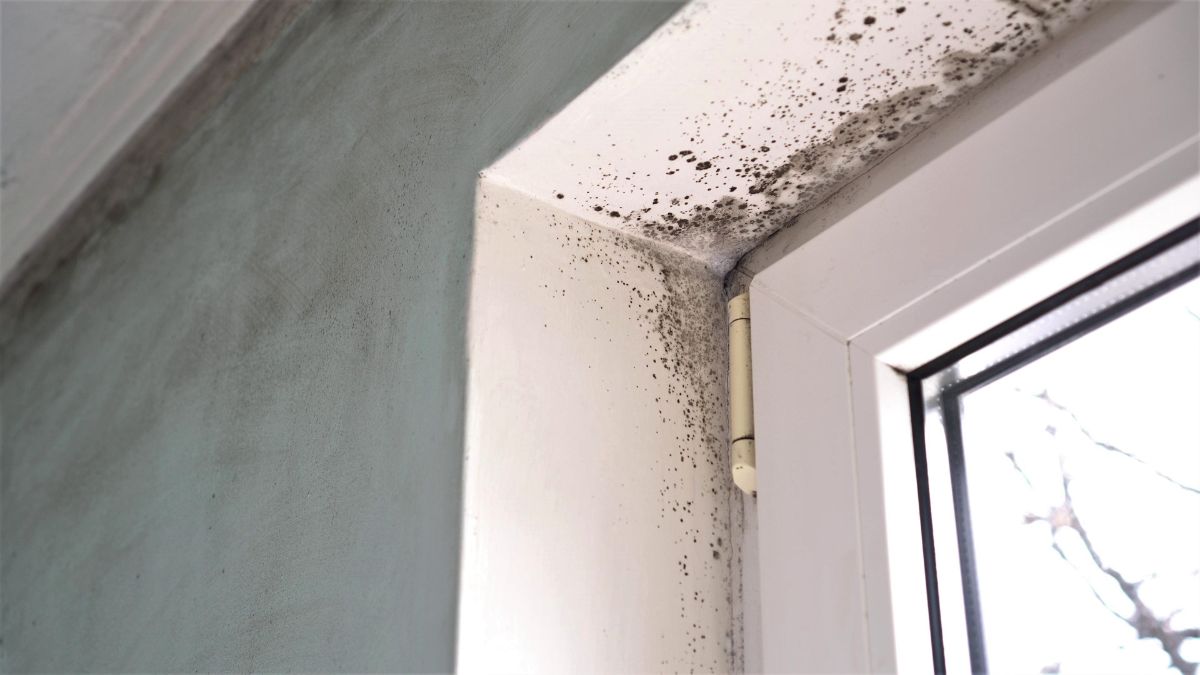
by Mold-B-Gone | Jun 22, 2023 | Killing Mold, Mold Removal
If mold gets into your home it can cause major issues that cost you time, hassle, and peace of mind. So it’s something you need to keep in check early and often. That being said, a common question homeowners have is whether or not mold can grow on metal.
After all, it typically grows on more cloth-like or porous materials. So let’s talk about whether or not mold can grow on metal in this article. We’ll also talk about how to get rid of mold if you find it.
Read More: What Is The Timeline For Mold?
The Dangers Of Mold
Before we get into “Can black mold grow on metal?” let’s talk about the downsides of having mold in your home.
Downsides of mold include:
Respiratory Illnesses
If you have asthma or someone in your family has any kind of respiratory illness, it can make those symptoms worse.
Mold gets into your lungs and can cause anything from minor symptoms to major symptoms.
General Health Effects
There are a variety of health downsides to having mold in your home. You could have sneezing, coughing, wheezing, shortness of breath, nausea, vomiting, or even headaches.
Fatigue is another side effect of having mold in your home. In other words, there are no upsides to having this fungus reside on your property.
Aesthetics
No one loves to see ugly green or black mold on any part of their home. This goes for exterior and interior surfaces. So you should call professionals to get it taken care of immediately if you notice any symptoms of mold.
Those symptoms include any kind of musty smell, black spots, green spots, peeling wallpaper, and more. Now, let’s talk about whether or not mold can grow on metal.
Can Mold Grow On Metal?
The answer to “Does black mold grow on metal?” is actually yes. Several types of mold can grow on metal. They can cause skin irritation, other health issues like we discussed above.
So just like other surfaces in your home, you need to also clean metal surfaces to avoid spore exposure and growth. Proper ventilation, professional cleaning, and specialty mold removal are all essential.
Get Mold Removal Services Today
Now you know that the answer to “Can mold grow on metal surfaces?” is yes. So it’s time to contact the experts at Mold-B-Gone Remediation. Our technicians will inspect your home and remove any traces of mold now and for the future.
You deserve to live in a home and breathe clean, fresh air that’s beautiful and fresh. So call us today for an estimate. Experience the best mold removal service in Atlanta.
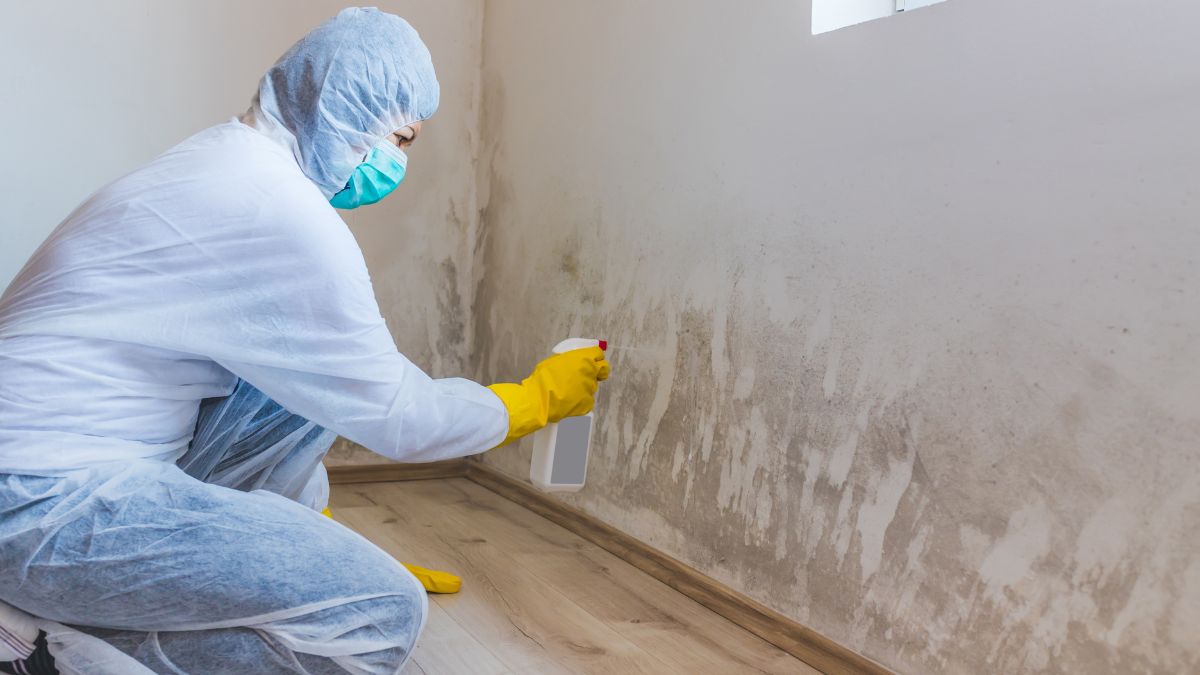
by Mold-B-Gone | Jun 15, 2023 | Killing Mold, Mold Information
Mold removal mediation is one of the most important services you can have done on your home.
If you need any kind of mold remediation or mold removal, contact the experts at Mold-B-Gone Remediation today. Our technicians will ensure that all of the mold is removed from your property without damaging anything else on your property.
That being said, you may be wondering “Do you have to leave your house during mold remediation?” So let’s discuss that question once and for all. That way you can be as prepared as possible when it comes to making your home clean and safe again.
The Dangers Of Mold
Mold can cause several issues for you and your family. It can cause allergic reactions in you and your pets. It can create respiratory problems and make asthma symptoms worse.
It could even lead to death in the case of black mold, which can be toxic. That’s not to mention headaches, nausea, and other physical discomfort. Furthermore, mold can damage your property — It can completely ruin wallpaper, couches, and other materials.
Mold is truly a pain to get rid of once it grows, so you should always let the professionals handle any kind of mold remediation or removal.
On top of that, if you try to perform remediation yourself, you could end up damaging your property above and beyond where it’s simply infected with the mold.
This is one of the many reasons to hire mold remediation professionals. That being said, let’s talk about mold remediation and especially “Can you live in a house during mold remediation?”
Can I Stay In My Home During Mold Remediation?
If it’s possible, it’s best to leave the home for a few days while the remediation is taking place.
That lets the professionals work with more flexibility. It also can speed up the process since there may be chemicals used to clean up the mold, and that way you don’t have to worry about breathing any of it in for the several hours that it may still be in the air.
Get Mold Remediation Services Today
Contact the mold remediation experts in Atlanta for any kind of mold remediation or mold removal. We’ll diagnose what kind of mold you have and take the necessary steps to ensure that you and your family can breathe clean, fresh air as soon as possible.
It’s time that you feel comfortable and safe in your home once again. Trust the experts to help you remove the mold and answer any questions such as “Can you stay in your house during mold remediation?”
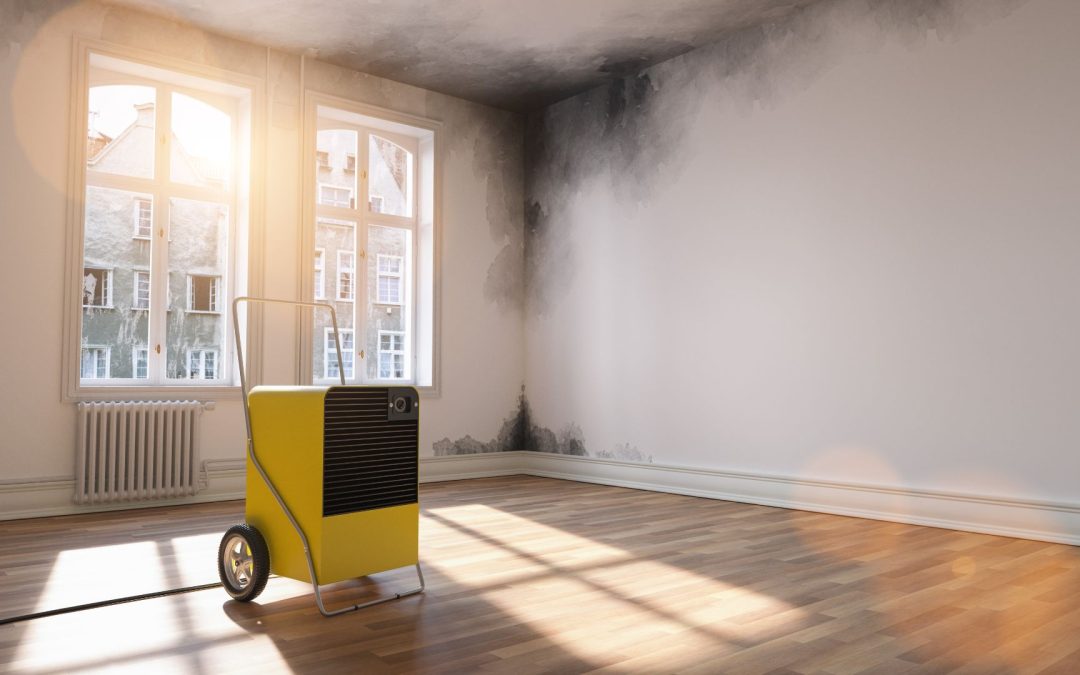
by Mold-B-Gone | May 23, 2023 | Killing Mold, Mold Removal
Mold is a common problem in several areas of the country. Yet, Atlanta’s humidity and heat mean that you may be more likely to suffer from this infestation. Let’s explore whether humidifiers are a viable solution to this pressing problem.
What Is A Dehumidifier?
A dehumidifier can help combat mold growth. Ultimately, dehumidifiers, as the name suggests, pull moisture from the air. This leads to a drier environment within the home.
So to answer the question, “Can a dehumidifier kill mold growth?” is yes and no. Indirectly, it prevents the habitat that mold loves to grow in. That being said, it won’t be enough to get rid of mold if it’s already taken hold. So you should always have professionals come out for mold removal in Atlanta.
How Does Mold Grow?
Aside from understanding “Will a dehumidifier kill mold”, and mites and fleas for that matter, let’s talk about the mechanism that allows mold to grow.
Mold loves moist, dark, damp environments. That’s why sinks, faucets, and other places in your home where there is water make an excellent mold habitat. Additionally, mold grows on paper, fabrics, cardboard, drywall, and paint.
And once it gets hold in your home, it can range from annoying to downright deadly.
How To Get Rid Of Mold
While you could try to install a dehumidifier and use some homemade methods, it’s best to have mold remediation done. Professional mold removal services kill the mold at its source so that it stops spreading.
After all, it’s very contagious, and once spores take hold, they tend to spread to other areas of your house — causing damage and health hazards.
Choosing A Mold Removal Company
When looking for the right removal services, ask them if they have insurance in place. Proper mold removal companies have insurance to guarantee their work for your protection.
Additionally, they should come out for inspection to properly assess the right method to use. And finally, look for a good online rating from other satisfied customers. This lets you know that you’re dealing with high integrity professionals with proven results.
Will Running A Dehumidifier Kill Mold? Summary
Contact Mold-B-Gone and get a free inspection. We’ll assess your property to see where mold is currently and potentially might be growing in the future. Then, we use state-of-the-art techniques and tools to remove the mold once and for all.
You deserve a clean, safe home. So reach out today and protect your property with expert guidance. After all, your house should be your refuge. And you shouldn’t have to ask questions like “Will a dehumidifier kill mold spores” ever again.

by Mold-B-Gone | May 9, 2023 | Killing Mold, Mold Facts, Mold Information
Bathrooms and kitchens are known for being places where mold grows. After all, there’s a lot of moisture in these areas. However, mold can also get into your room.
So if you’re sleeping in the same room as mold, you’re probably wondering, “Can you sleep in a room with mold in it in the first place?” After all, mold is known to cause some health problems, such as pneumonia, asthma, and other respiratory issues.
So let’s discuss what causes mold to grow and whether or not it’s safe to sleep in a room where it’s growing. And by the way, there is a difference between mold and general fungus. So read this article if you need clarification on these two topics.
What Is Mold?
Mold is microscopic spores that get into the air. These strains then attach to materials like cardboard, wood, wallpaper, and more.
Health Effects Of Mold
So what happens if you sleep with mold in your room in terms of health? And is it safe to sleep in a room with mold?
Well, you’ll be in for a lot of health issues unfortunately. Mold can cause allergic reactions, toxic effects, and irritations. While some mold is harmless, a lot of mold is deadly. If you breathe mold in for an extended period of time, it can cause infections, respiratory illnesses, and a poor immune system.
You should avoid sleeping with mold at all. It can compromise your sleep in addition to the hazards mentioned above. It can lead to poor sleep quality and REM, which means your body won’t recover or heal as well. So that being said, the answer to “Can you sleep in a mold bedroom” is no.
Signs That You Have Mold In Your Bedroom
Now that we know what happens if you sleep in a room with mold, let’s talk about how to detect it:
- Condensation on your windows
- A damp closet
- A musty odor
- A dark green or black area on your walls
If you notice any of these symptoms, call professional mold removal experts in Atlanta to come and inspect your bedroom right away.
How To Get Rid Of Mold In Your Bedroom
You deserve to sleep in peace for 8 to 9 hours a night. The last thing you want is mold in your bedroom, which causes health problems and sleep quality issues. So contact Mold-B-Gone right now if you want to improve your rest quality and eliminate airborne illnesses.
Also, we encourage ventilation in the meantime. Open your windows and get clean air flowing throughout your home, and use a dehumidifier. The less moisture that’s in the air, the less likely that mold spores can stick to your surfaces and grow.
Our experts will provide attention to detail when enacting the best solution and remediation to get mold out of your home.
Sleeping In A Room With Black Mold? You Don’t Have To
If you’re sleeping with mold in your room, our professional mold removal specialists can use thorough and powerful techniques to kill mold spores and keep them from spreading. Give us a call today, and bring peace of mind to your household.






